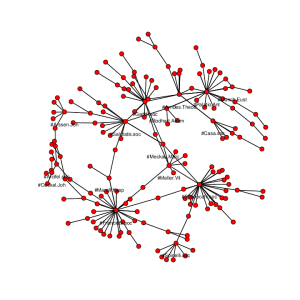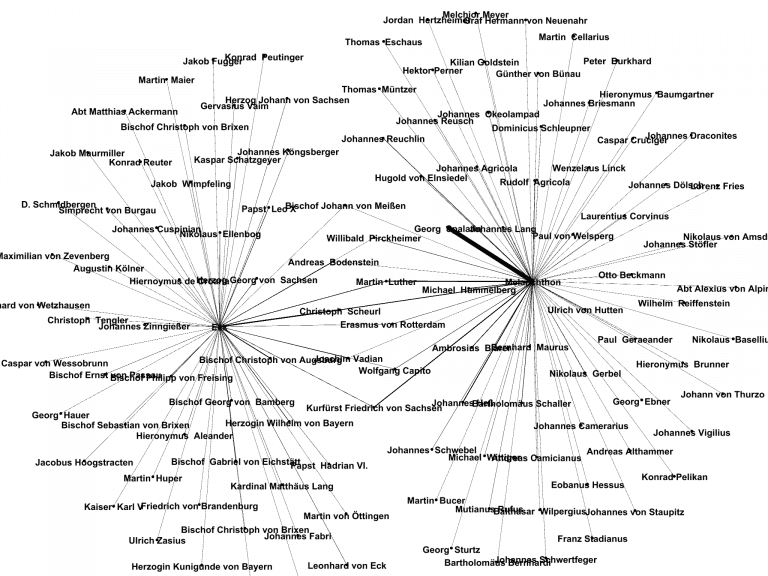
Impulse project, funded by the Thuringian state program „Pro-Digital“ (duration 2020 – 2021)
Researchers: Prof. Dr. Clemens Beckstein, Associate Professor Dr. Robert Gramsch-Stehfest, Dr. Christian Knüpfer, Clemens Beck, M.A.
Network of Annaten payments to the papal curia under Pope Sixtus IV. (1471-1484)
Picture: MEPHISTO, CC BY 4.0In a first project step, the requirements for the research environment for historical-scientific topics are to be specified and individual functionalities prototypically implemented. To the outside world, the research environment presents itself to the users as a „digital assistant“, in which we take our cue from a famous analog prototype – the „Luhmann Zettelkasten“ and should meet the following requirements:
Collaboration: Teamwork while editing a knowledge base is made possible.
Openness: The type and structure of the facts to be represented is flexible.
Reusability: Once a knowledge base has been processed, it can be easily adapted to other questions.
Adaptability: Algorithms developed for specific research tasks can be integrated, such as import and export filters or analysis methods. Import filters allow the semi-automatic integration of other repositories; export filters make the represented knowledge available for external use.
Transparency: The origin of every fact is traceable. This implies the logging of changes to the knowledge base and the generation of explanations for derived facts and leads to a significant improvement in the traceability of the published knowledge as well as the research process itself.
Consistency: The possibility to compare contradictory information and to automatically identify them should be provided. Comment functions and a version management system make it easier for users to develop the knowledge base step by step.
Ergonomics: There are comfortable possibilities to navigate in the knowledge base, to determine relevant facts for a question and to prepare these facts in a structured way for further processing.

